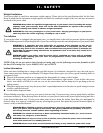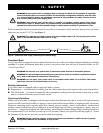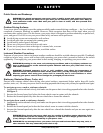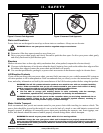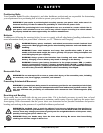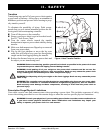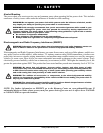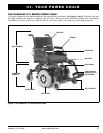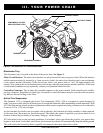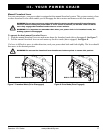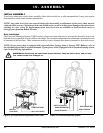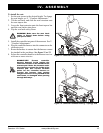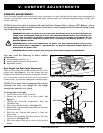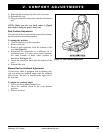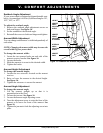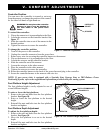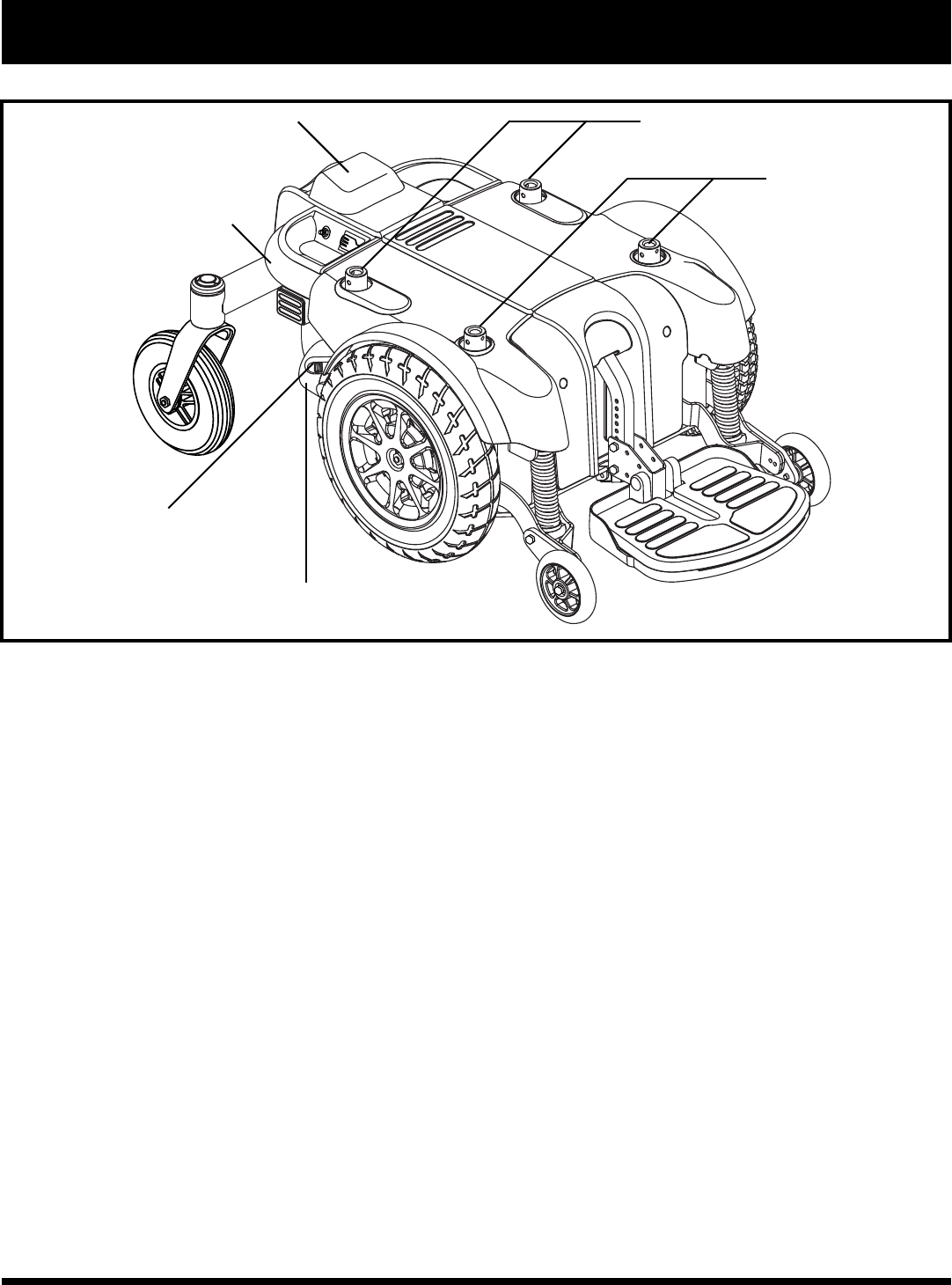
16 www.pridemobility.com Quantum 1121 Series
III. YOUR POWER CHAIR
REAR SEAT TOWERS
Figure 6. The Quantum 1121 Series Power Base
FREEWHEEL LEVER
ELECTRONICS TRAY
POWER MODULE (LOCATED
UNDER ELECTRONICS TRAY)
MOTOR/BRAKE ASSEMBLY
FRONT SEAT TOWERS
Electronics Tray
The electronics tray is located on the back of the power base. See figure 6.
Main Circuit Breaker: The main circuit breaker is a safety feature built into your power chair. When the batteries
and the motors are heavily strained (e.g., from excessive loads), the main circuit breaker trips to prevent damage
to the motors and the electronics. If the circuit trips, allow your power chair to “rest” for approximately one
minute. Next, push in the circuit breaker button, turn on the controller, and continue normal operation. If the main
circuit breaker continues to trip repeatedly, contact your Quantum Rehab Provider.
Controller Connector: This is where the controller connects to the power module. Each controller uses a differ-
ent type of harness. Regardless of which type of controller is used, the harness must be secured to the seat assem-
bly and not allowed to drag on the floor.
Active-Trac Suspension
The Quantum 1121 is equipped with Active-Trac Suspension (ATS). ATS is a suspension system designed to
make your power chair traverse different types of terrain and obstacles while maintaining smooth operation. With
ATS, the front anti-tip wheels work in conjunction with the motor suspension to help you maneuver over obstacles
in excess of 3 in. (7.62 cm) in height.
As the front anti-tip wheels come in contact with an obstacle, the front anti-tip wheel assembly is drawn upward.
At the same time, the motors are forced downward. This allows the motors to push the your power chair over an
obstacle without the possibility of becoming “hung up” on the obstacle.
ATS also helps in day-to-day operating conditions. For instance, when you release the joystick, your power chair
begins to slow down. As the chair slows down, the front anti-tip wheels will automatically drop toward the ground.
This will reduce the forward tip that is typically encountered with center-wheel drive chairs.



